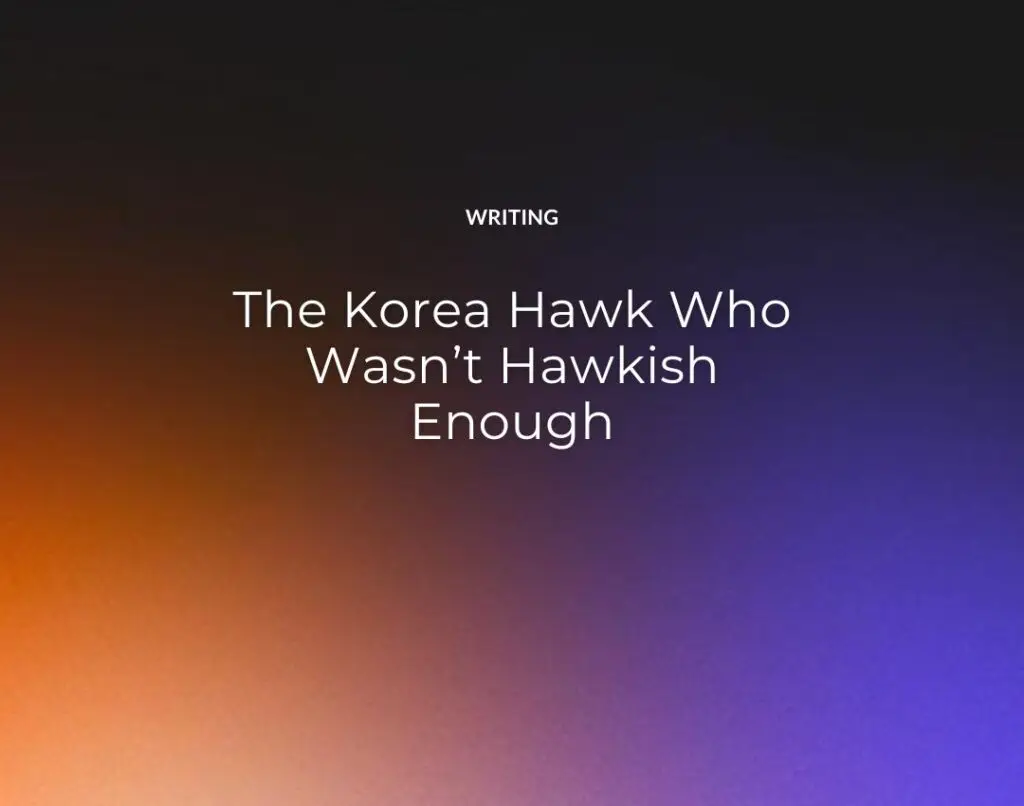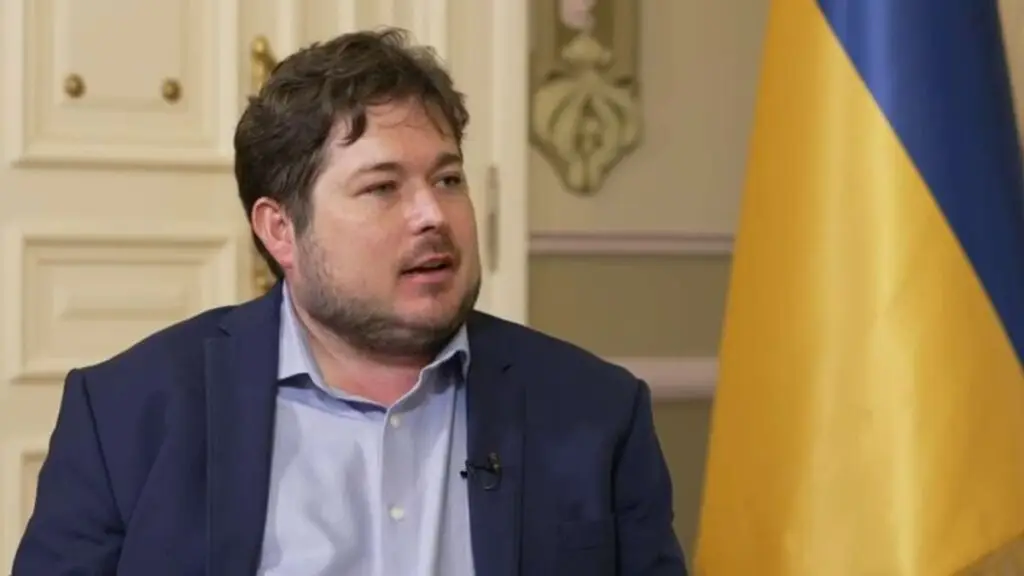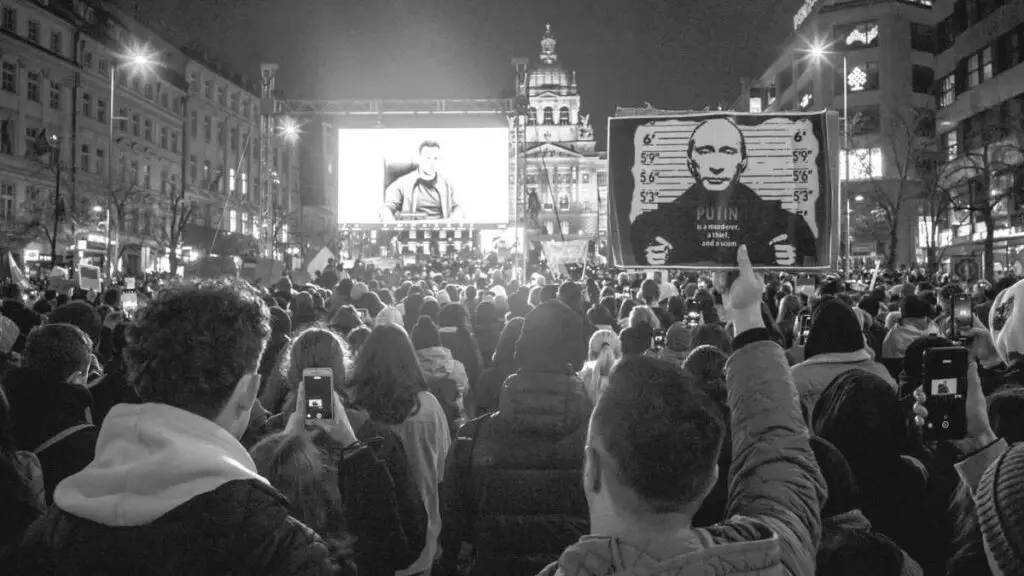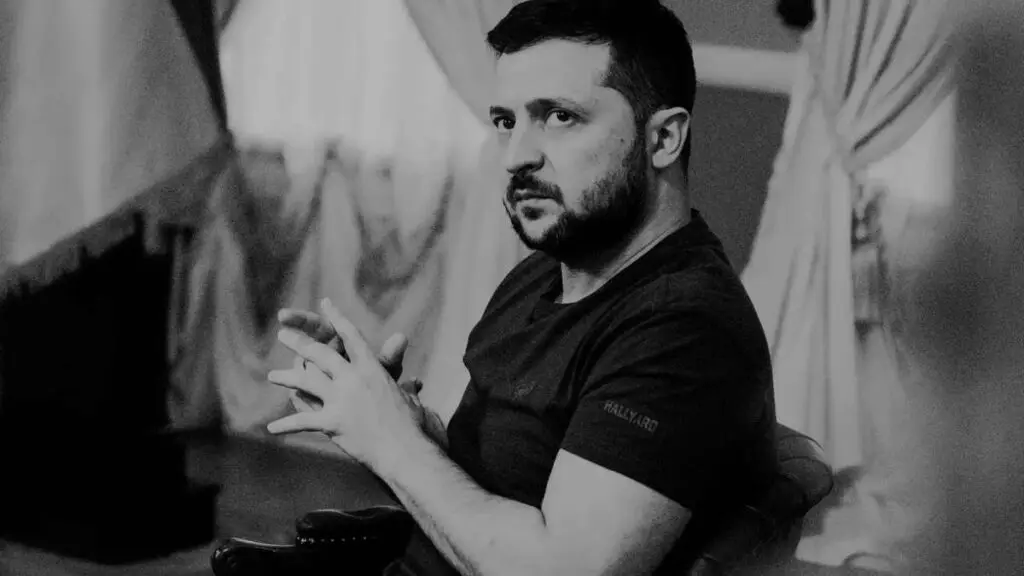By Geoffrey Cain
Foreign Policy
Feb 2, 2018
Victor Cha is experienced, informed – and no peacenik. None of that mattered for the Trump administration.
SEOUL and WASHINGTON — South Koreans are so accustomed to on-again, off-again nuclear tests and boisterous threats from North Korea that the regime usually merits little more than an indifferent shrug. Over the last year, they’ve adopted the same attitude toward the belligerent talk coming out of D.C.
But the latest move from U.S. President Donald Trump has the tightknit policy community of Seoul and Washington, D.C., deeply and unusually alarmed. After months of delay, the White House dropped star Georgetown University professor Victor Cha as its pick for ambassador, as first reported by the Washington Post on Tuesday. People familiar with his candidacy tell Foreign Policy the nomination process had been underway since last March.
In meetings with the White House, Cha reportedly had reservations about a preemptive “bloody nose” strike on North Korea that caused the administration to doubt his loyalty. But Cha isn’t a peacenik; he’s often described as a hawk, and he is well liked in both American and South Korean diplomatic circles. That Cha wasn’t hawkish enough for Trump has set off alarm bells in Seoul and Washington, where pundits took to social media to suggest this means Trump isn’t bluffing about a preemptive strike on North Korea, a strike that could set off a bloody, prolonged Second Korean War.
Both hawkish and dovish South Korean newspapers reacted in unusual agreement. “His withdrawal sends a worrying signal that the Trump administration is seriously considering a military strike against North Korea,” wrote the right-wing Chosun Ilbo. The left-leaning Hankyoreh opined that “it’s worrisome that the dangerous argument for a preemptive strike against North Korea is still being made at the White House.” The conservative Dong-A Ilbo newspaper went as far as to say that, “inside his heart, he [Cha] would be concerned about his ‘motherland’” — referring to South Korea, because Cha is an ethnic Korean born and raised in the United States.
Those fears were compounded by the president’s own words the same day as the Washington Post story broke. “I will not repeat the mistakes of past administrations that got us into this very dangerous position,” Trump said later that night in his first State of the Union address. “We need only look at the depraved character of the North Korean regime to understand the nature of the nuclear threat it could pose to America and to our allies.”
Yet across the political spectrum, former colleagues and friends of Cha’s told FP the conservative thinker was an ideal candidate for ambassador, with a rare combination of world-class academic expertise, policy experience forged under the George W. Bush administration, and a levelheaded social charm. Many hoped he’d bring insight and consistency to the Trump administration, which has made “little rocket man” and “fire and fury” part of the new Beltway slang. Cha was seen as a plausible fit for the administration, but one who could balance Trump’s explosive rhetoric while nudging Korea strategy away from the riskiest variety of confrontation.
In the absence of a politically appointed expert like Cha, the government still wields a brain trust of North Korea specialists, many of them in the State Department — such as Sung Kim, a former ambassador to South Korea who was deeply involved in past North Korea talks and is now ambassador to the Philippines, and Joseph Yun, special representative for North Korea policy. But what’s worrisome is that an exodus of career experts (such as sanctions expert Joshua Black, who left in January) is opening a dangerous lack of diversity and moderation on the North Korea problem. The fear in Washington is that the Trump administration is forming an insular group of advisors dominated by national security advisor H.R. McMaster, who has described North Korean leader Kim Jong Un as irrational and undeterrable.
The political wind of “preemption,” and the purging of more moderate voices, is starting to look eerily similar to the lead-up to the U.S. invasion of Iraq in 2003. Except unlike Iraq, North Korea has confirmed loudly and boldly, through nuclear tests, that it has weapons of mass destruction — and the results of a “bloody nose” strike are likely to be catastrophic, experts say.
“‘Hawk’ is more a political than an intellectual label,” said David Kang, a professor of international relations at the University of Southern California, and a left-of-center co-author and longtime collaborator with Cha. “He’s medium-right. He works well with Republicans who are skeptical of engagement. But he knows that any war on the peninsula is bad for everybody. When Trump speaks in his typical flamboyant style, Victor’s task would have been telling South Korea, ‘What the president really meant was this.’”
Kim Sung-han, a former South Korean vice foreign minister and dean at Korea University’s Graduate School of International Studies, painted a similar picture. Before the news of the White House’s move broke, he predicted a Cha ambassadorship would act as a “liaison office” in which tweets and remarks on policy would have been “filtered and refined to the Korean side.” In addition to his policy background, Cha’s Korean-American heritage was a plus, he said, allowing him to “contribute to conveying correct messages and avoiding misunderstanding between Seoul and Washington in dealing with North Korea.”
As a rising professor of international relations at Georgetown in the early 2000s, when Bush administration hardliners thought engaging North Korea was a dangerous and failed policy, Cha first made his mark as a muzzled hawk, coining the term “hawk engagement.” “I argue that U.S. hawks should support engagement with Pyongyang,” he wrote in International Security in 2002, “not because the regime is crazy, near collapse, or misunderstood, but because engagement can prevent the crystallization of conditions under which Pyongyang would calculate aggression as a ‘rational’ course of action even if a DPRK [North Korean] victory were impossible.”
None of this means Cha is soft on the Kim regime. Rather, he favors being tough while treating engagement as what he called a “tactical imperative” — a way of tackling North Korea head-on without careening into catastrophe. “That’s because engagement provides you, the hawk, with the maneuvering room you need to corner North Korea in the case of its noncooperation,” he told the New York Times in February 2002. “It builds a coalition for punishment.”
Cha already knew then-national security advisor Condoleezza Rice at Stanford, when she was Stanford University provost and he was a postdoctoral fellow, and his early writings were well liked by people he knew in the Bush administration. After being appointed director of Asian affairs in George W. Bush’s National Security Council in 2004, Cha cultivated an image in North Korea negotiations and among journalists covering them as a careful, pragmatic, and principled strategist who understood the importance of denuclearization talks, but who also saw the importance of stepping back and thinking carefully about North Korean intentions.
“One of my many tasks was to draft everything that the president and his national security adviser might read or say about Korea,” Cha wrote in his 2012 book, The Impossible State. As a country expert, one of his natural roles was sifting through the regime’s rhetoric and intentions and decoding terms that were alien or impenetrable to many outside Pyongyang. One time, alarm bells went off while reading a draft of a joint declaration from the six-party talks to denuclearize North Korea.
The problem? When the Chinese delegation wrote the draft, it mentioned “peaceful coexistence” between the United States and North Korea. The chief U.S. negotiator, Christopher Hill, didn’t appear to be giving much thought to the phrase, so without telling Hill, Cha called his boss, national security advisor Stephen Hadley, to deliver his concerns.
Whatever China’s intentions, Cha believed North Korea had its own definition of “peaceful coexistence”: a peninsula unified under North Korean terms and purged of the U.S. military presence. After a last-minute intervention from Secretary of State Condoleezza Rice, the document was changed to read “exist peacefully together,” a nuance that may have saved Washington from an embarrassing propaganda coup for North Korea.
“My sense is that he was more prepared to deal with the North Koreans — unlike the neocons in the Bush administration — but that he was more cautious and less enthusiastic than, say, Chris Hill,” said Mike Chinoy, a senior fellow at the University of Southern California’s U.S.-China Institute, who interviewed Cha for his 2008 book, Meltdown: The Inside Story of the North Korean Nuclear Crisis. “Given the dubious caliber of some of the people Trump has hired, he is a pretty levelheaded, nonideological kind of guy who gets the importance of the U.S. alliance with South Korea.”
Cha left the National Security Council in 2007 and returned to Georgetown. That year, the Bush administration and North Korea agreed on the process by which North Korea would disable its nuclear facilities in exchange for food and fuel aid. But two years later, following more diplomatic tit-for-tats with a new conservative government in South Korea and the United Nations, North Korea announced it was withdrawing from the talks and then, in 2010, it torpedoed a South Korean naval corvette and shelled an island, killing about 50 people.
The six-party talks had collapsed, setting the stage for the current unresolved standoff.
While the Barack Obama administration pursued “strategic patience” with North Korea, Cha, having returned to Georgetown and joined the Center for Strategic and International Studies, continued to take a hawkish tone on the North, without giving up an underlying optimism that the North Korean people could one day be empowered. When the North Korean dictator Kim Jong Il died in December 2011, Cha predicted incorrectly in the New York Times: “North Korea as we know it is over. Whether it comes apart in the next few weeks or over several months, the regime will not be able to hold together after the untimely death of its leader, Kim Jong-il.”
Cha’s strong views placed him in opposition to another school of experts who believe more needed to be done to engage North Korea. One of them is Siegfried Hecker, a former head of Los Alamos Labs who has visited North Korea many times to assess its nuclear program, and who recently said that Bush-era diplomacy was “too little, too late.” Another, Moon Chung-in, is the South Korean presidential advisor who helped draft the late-1990s “Sunshine Policy,” a rapprochement toward North Korea with aid, talks, and a presidential summit in 2000 with the hope of an eventual peaceful unification. Moon now serves as an advisor to the current left-leaning South Korean president, Moon Jae-in (no relation).
Despite repeat predictions, North Korea never collapsed, but Cha continued to promulgate these views, seen as risky within North Korea policy circles. “I believe that the forty-fifth president of the United States will contend with a major crisis of governance in North Korea before he or she leaves office,” he wrote in 2012 in The Impossible State. “[A] growing space between the state and the people will … uproot the foundations of the regime.”
Almost no one predicted that the 45th president would be Donald Trump, and that Cha would, for almost a year, be his ill-fated nominee for ambassador. Friends and acquaintances of Cha’s said that he first informed them of his possible nomination last March, and that they understood to keep the news low-key. During that time, as rumors were spreading of his coming nomination among journalists and policy experts, colleagues said he kept a low profile and they were informed little of his activities, especially as he underwent a rigorous government background check for about six months.
In December, the State Department submitted its request to the South Korean government to send Cha as its ambassador, receiving swift approval. The same month, Cha was in disagreement with National Security Council officials about launching a “bloody nose” strike, trumped by the hawks in the Trump administration.
The Trump administration never formally nominated Cha for confirmation by the Senate, and the lack of a definitive word from Cha, the White House, the State Department, or the South Korean government was a topic of banter for befuddled foreign correspondents in Seoul and Washington. On Jan. 14, Cha asked Foreign Policy to hold off publishing articles about his possible nomination until after it had been confirmed by the Senate.
South Korea’s policy community was shocked and dismayed when the Washington Post broke the news on Jan. 30 that the White House had dropped Cha from consideration. Trump administration officials have sought to paint this as a problem with his background check. One person familiar with Cha’s vetting process told FP that a red flag was raised over whether the nominee’s relationship with South Korea’s political elite could pose a problem in confirmation hearings.
But in the end, Cha reportedly got his security clearance, which suggests the real problem for the White House was Cha’s disagreement with the idea of a “bloody nose” strike. “Some have argued the risks are still worth taking because it’s better that people die ‘over there’ than ‘over here,’” Cha wrote in an op-ed in the Washington Post the same day the news broke he was dropped. “On any given day, there are 230,000 Americans in South Korea and 90,000 or so in Japan. Given that an evacuation of so many citizens would be virtually impossible under a rain of North Korean artillery and missiles (potentially laced with biochemical weapons), these Americans would most likely have to hunker down until the war was over.”
Cha, fellow policy experts say, is well liked and skilled at compromise, so it’s most certainly a problem with the Trump administration. His writing, after all, shows a call for restraint that reflects the pragmatism belying Cha’s hawkishness. “We’re in a controversial field,” his co-author Kang said. It’s field where emotions can run high and even its best minds turn to pointed and personal criticisms. It’s a field in which, with almost zero access to the regime’s inner circles, its thinkers struggle to agree on the basics of how the regime is structured—whether it’s a fascistic ultra-nationalist state, a Stalinist one, a pragmatic one trying to extract money and aid from bigger powers, or some sort of medieval Confucian monarchy—let alone how to deal with it. “Victor gets a lot of pushback. But he doesn’t get emotional. At conferences, he turns it into talks. He’ll ask, ‘What are we trying to get out of this?’”
Trump’s sudden dropping of Cha has slammed the door shut on a measured voice, and on a diplomat well-poised to prevent a full-on conflict with North Korea in an administration nearly stripped of measured North Korea experts. “If the White House dropped him over his opposition to a military strike, it is time to get really worried,” Chinoy, the USC fellow, said. “It’s not just threats on Twitter.”
Haeyoon Kim and Max Kim contributed reporting from Seoul.
This article has been updated after publication.
The article was originally published in Foreign Policy
See Also:






